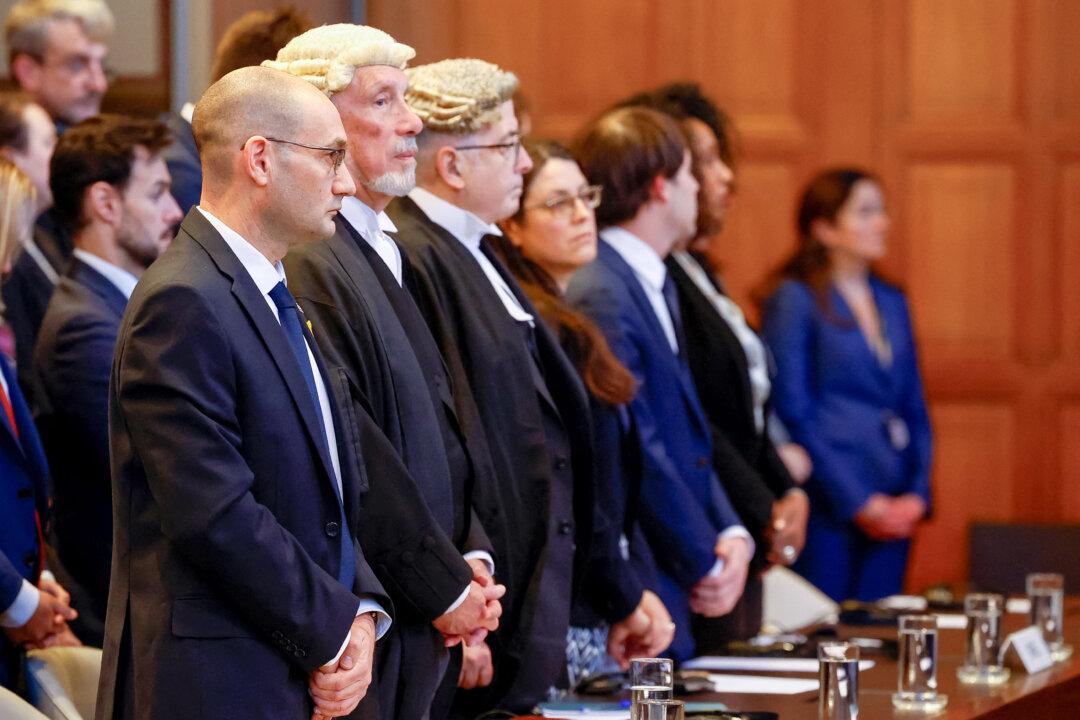The International Court of Justice (ICJ), the United Nation’s top court, has ordered Israel to take added measures to prevent harm to civilians and to preserve evidence related to allegations of genocide in Israel’s ongoing war against the Hamas terrorist group in the Gaza Strip but has stopped short of ordering a cease-fire.
The ICJ issued the order on Friday, in response to an ongoing case brought by South Africa, accusing Israel of violations of the 1948 U.N. Convention on the Prevention and Punishment of the Crime of Genocide. The ICJ’s ruling on Friday amounts to an interim decision while the genocide case proceeds.





